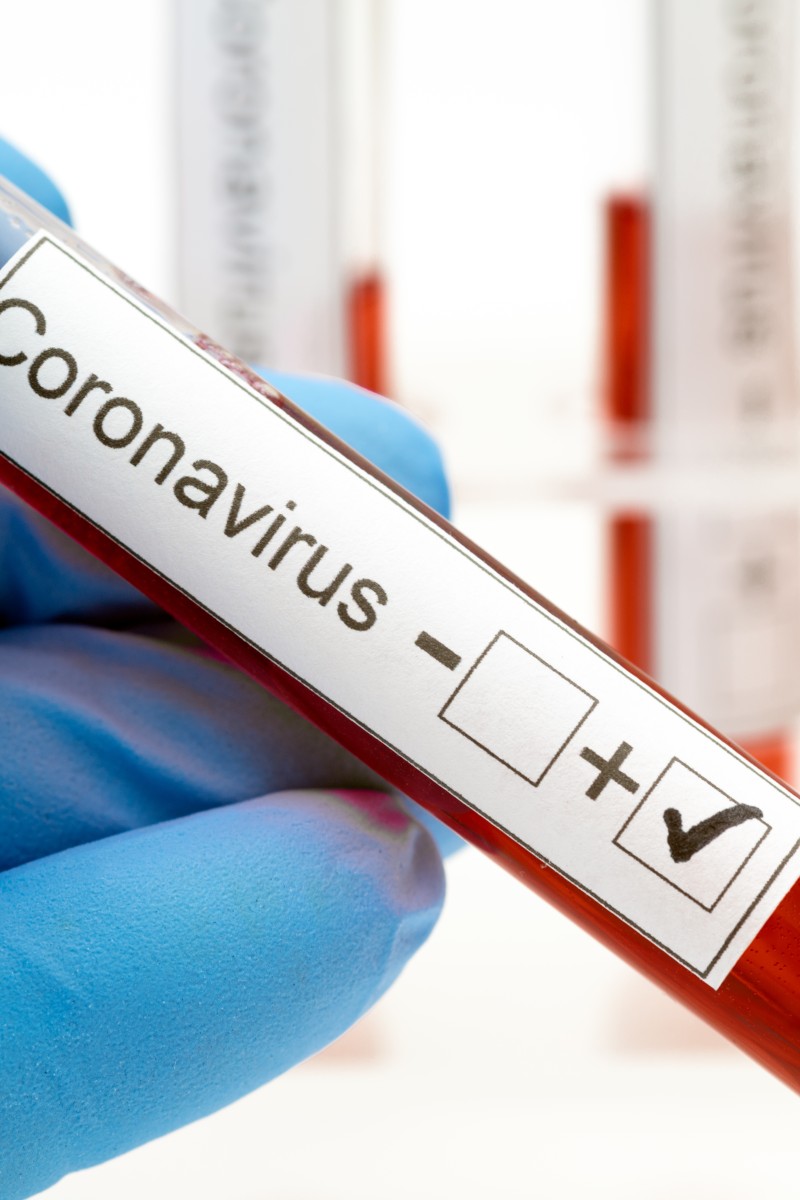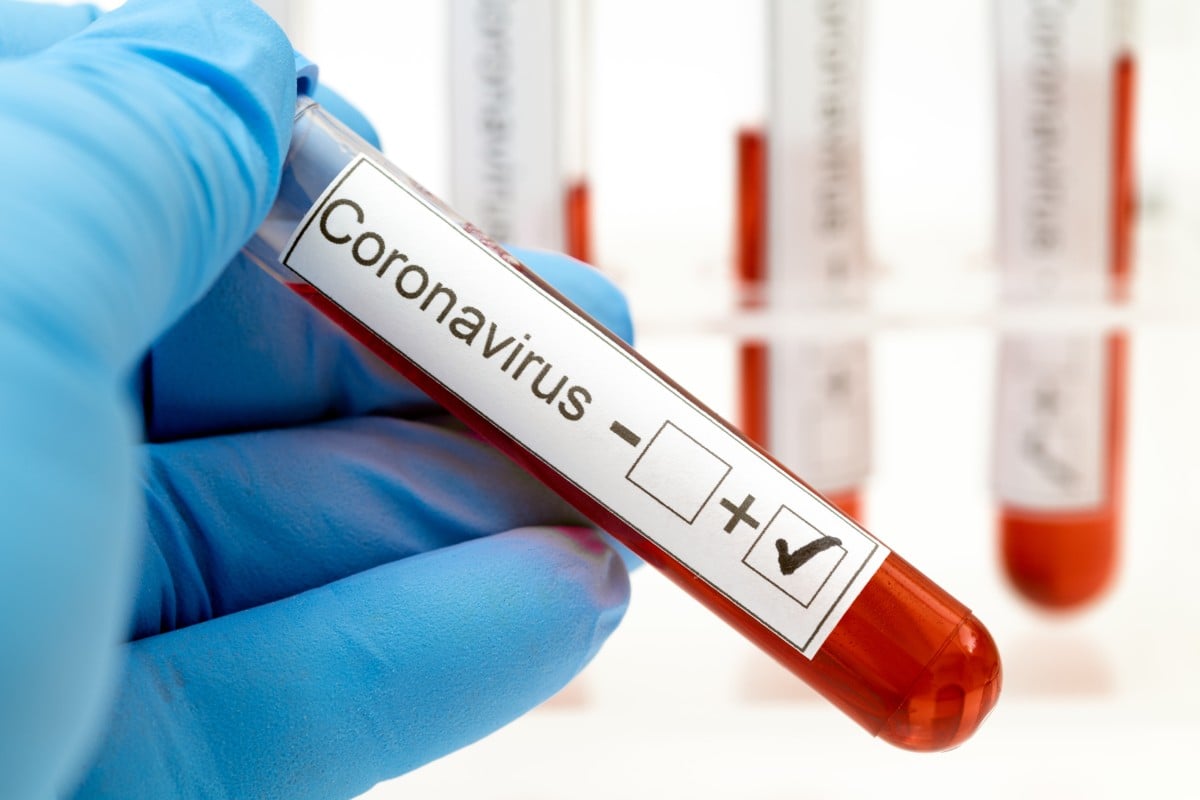
- Junior Reporter Belinda Ng shares her experience of recovering from the deadly disease sweeping the planet
- The University of Cambridge student has fully recovered from the novel coronavirus
 What's it like to test positive for Covid-19?
What's it like to test positive for Covid-19?Junior reporter Belinda Ng recently tested positive for the coronavirus. She has completed her treatment and been released from hospital and shared her ordeal with Young Post. Belinda got out of hospital on March 25, after spending six days there.
It starts with a little bit of tightness in my chest. You’re just tired after the long term and need some rest, I think. You probably just have a little cold. Feeling extremely sluggish and light-headed, I decide to sleep early, but wake up the next morning at 8am, feeling as if my body was on fire with a fever. I pant rapidly because it is so hard to breathe.
The trip to Queen Mary hospital fills me with dread, but I have to get tested. I pack hastily, not knowing when I will be home again. After initial checks confirm I still have a high fever, I am immediately isolated in a negative pressure room, still finding it hard to breathe.
The test for Covid-19 is not pleasant at all. The nose swab goes in so deep that tears spring from my eyes every time, and it takes all my energy not to choke or cough when my throat is swabbed.
The nurse tells me that I won’t know my results until about 5pm, so I’m given a bed beside a couple of other people who are also awaiting their results. “Don’t touch anything,” the nurse warns me. At this point, I’m so weak that I can barely even register my surroundings. I fall asleep.
The things we took for granted before Covid-19
Under strict rules of limited contact, the doctors and nurses speak to me by phone, quizzing me about my symptoms and who I had been in contact with in the last two weeks. I answer as best I can through my pounding headache and hazy thoughts. The other patients in the room are called to be informed their tests are negative, and soon I’m left alone, filled with dread.
The doctor calls me just past 5pm, and says, “The preliminary tests show that you are positive for Covid-19”. I’m scared, in disbelief, and shocked. Having read the news about the outbreaks whilst I was abroad, and carefully self-isolating before coming back to Hong Kong, I couldn’t believe I was positive.
Before long, I’m asked to move to a new isolation ward. Moving a positive Covid-19 patient is a logistical feat. The hospital staff communicate on walkie-talkies, and I’m escorted by three members of staff led by the security guard, who urgently shout “DON’T COME NEAR HERE!” at anyone nearby to clear the path. “ALL CLEAR”: he beckons our group forward, and I’m ushered hurriedly into lifts and a maze of corridors to a new isolation ward. In my feverish state, I think, I’m almost like a celebrity.
In my new isolation ward, I’m told over the phone that I will begin treatment tomorrow. Time has little meaning, and I wake up repeatedly dizzy, very feverish, and occasionally drenched in sweat. But the hardest part is commanding my lungs to work. Every breath takes so much effort. I miss being able to breathe normally.
Covid-19 is a very lonely battle.
In isolation, I’m constantly monitored by camera, which means that nurses are on hand to provide extra blankets when I wake up shivering violently from rigors. Every person who visits my room is hasty and wary, which leaves me alone for the vast majority of time.
I miss everyone. I dread waking up every morning, because it is always by nurses coming to do that very painful nose and throat swab test. I deposit saliva into a tube and have blood drawn every single day. Although I’m not a fan of needles, pain has become a familiar part of my life in the hospital, given that treatment also involves injections into my stomach area.
Covid-19 vs. the human immune system
As my fever gradually subsides, I face a whole raft of side effects from the antiviral treatment. I wheeze, feel extremely nauseous and very dizzy. With every action, I have to hold in the need to vomit.
When doctors deem my case more stable, I am moved to a shared isolation ward to make way for the influx of new Covid-19 cases. Standing leaves me breathing heavily, and I am so nauseous that I cannot manage it for more than a minute. I’m thankful for the wheelchair that takes me over to the new ward – while everyone else walks.
Days and nights blur into one in the new ward. My bed is far away from the windows, and being confined to my bed, I miss being able to see the view outside. Despite the intense nausea, I tell myself that this is a price worth paying so long as the treatment was helping me fight the virus.
Finally, I receive the unexpected call that my swab tests are clear, and that I can be discharged as a recovered patient. Even at my age, I’m not impervious to the effects of the virus. X-rays show its impact on my lungs, leaving me with a lingering cough and shortness of breath for months to come. Covid-19 is not just a common flu. Social distancing is vital no matter who you are.
I must end by acknowledging the many people working tirelessly in Hong Kong hospitals to treat Covid-19 patients. Being in the isolation ward itself is already risky for anyone, let alone the extremely risky acts of taking swab tests and drawing blood from infected patients. It is here I must deeply thank the nurses, doctors and room cleaning staff who take on this risk every time they enter an isolation ward. I have been so fortunate to be treated by reassuring and empathetic healthcare workers and medical professionals which have provided me the much-needed human comfort in the unfamiliar and bare isolation wards. In fact, I very quickly learnt that the hospital is in a shortage of protective gear. Every entry and exit to the isolation wards meant the entire suit had to be disposed of to avoid contamination, which was why nurses always tried to meet my needs all at once to limit the number of times they entered the room.This problem is only exacerbated by the fact that more and more patients are being admitted every day. Yet, the frontline workers never once wavered in their hard work to help us recover. The sincerest thank you goes to all those in the healthcare sector in Hong Kong hospitals and across the world who sacrifice their time with their own families to treat Covid-19 patients. You are all true heroes that deserve to be recognised more for your hard work. Given how easy it is for us to make choices for social distancing, we must all play our part to help reduce the strain on these healthcare workers.
Belinda is an undergraduate student studying at the University of Cambridge. She has been a Young Post Junior Reporter since 2015, and the Grand Prize winner of the Student of the Year Awards 2016.